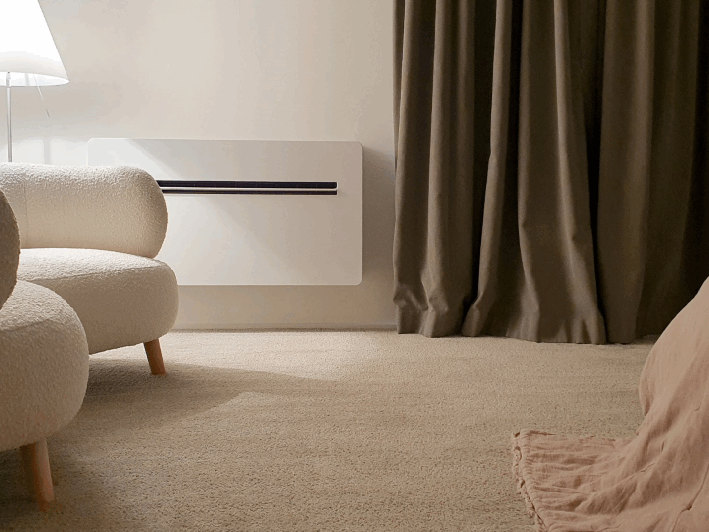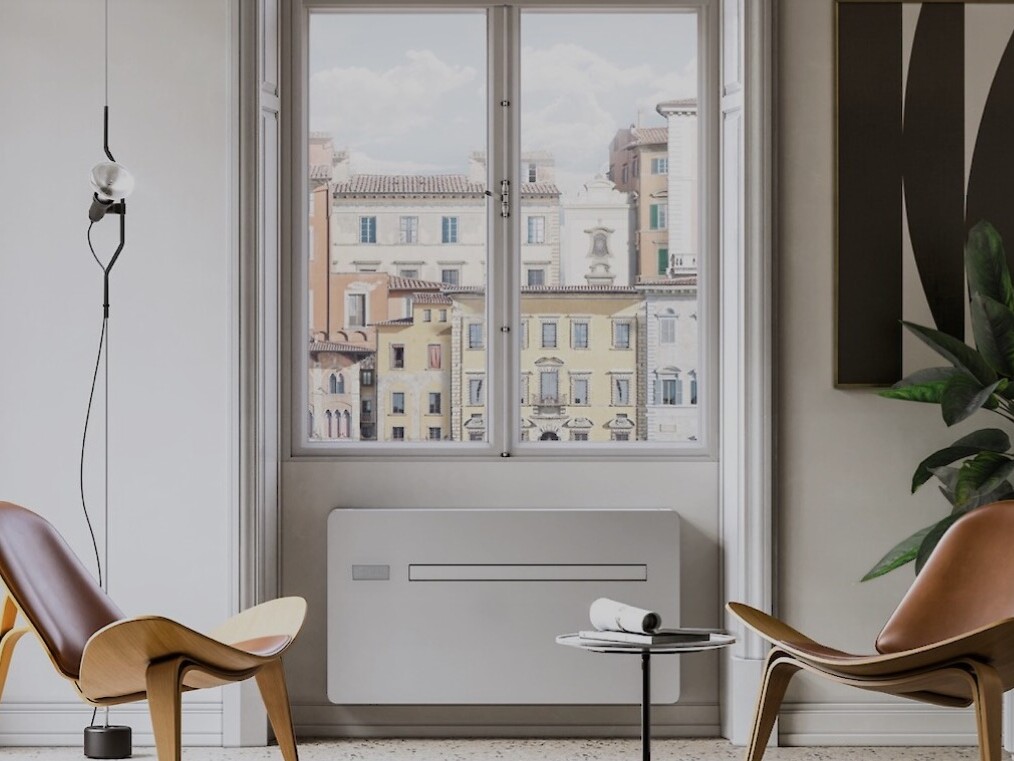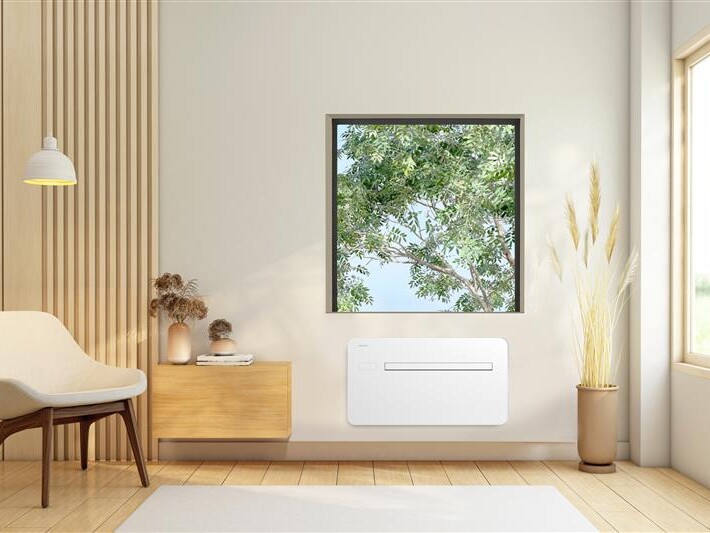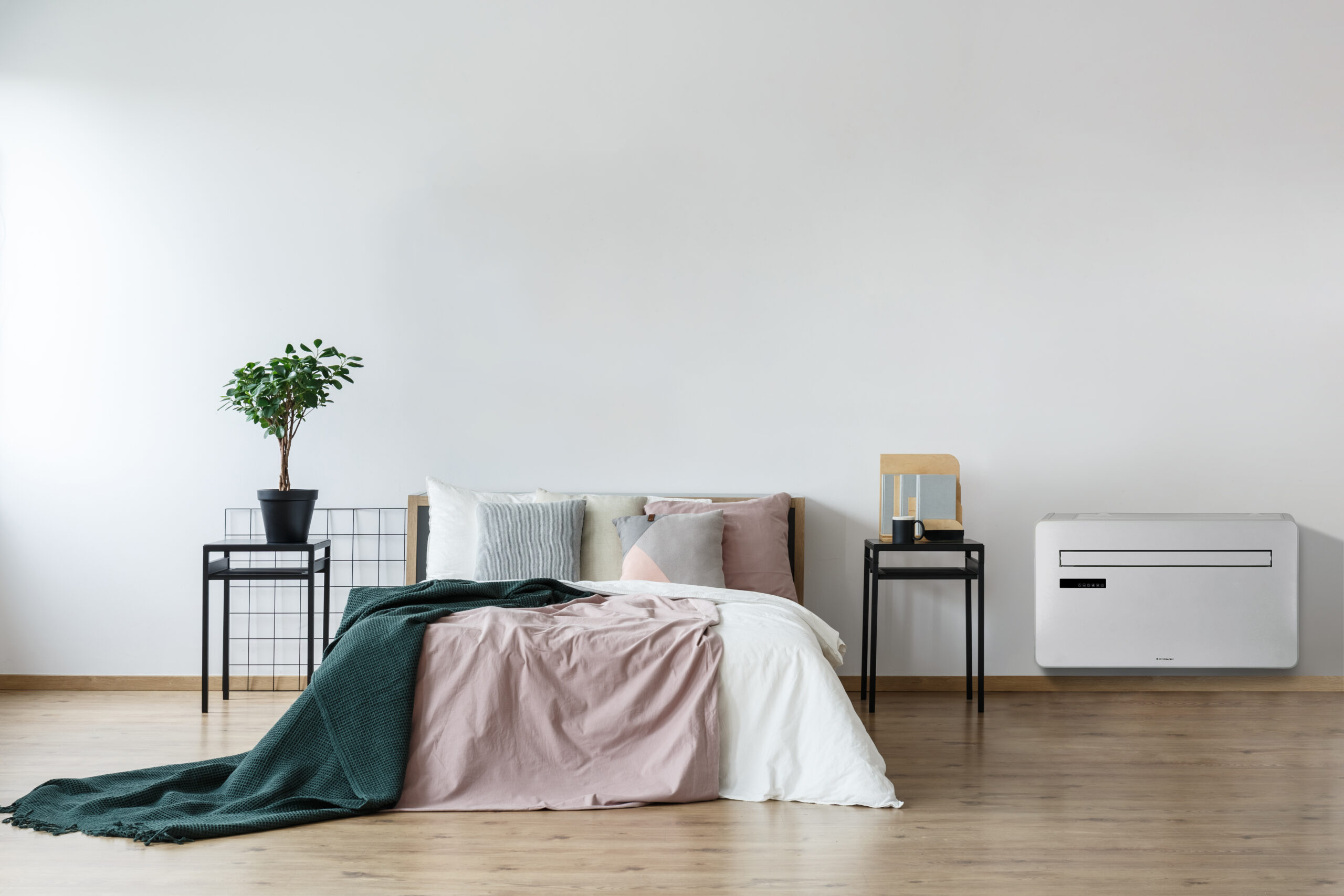
With summer just around the corner, it's understandable that you're looking for the ideal air conditioning solution for your home. But with so many options on the market, it can be difficult to choose the best-suited air conditioner. We've listed the key points to help you make the right choice. Choose the ideal air conditioner for your needs and desires in just 6 steps.
* Step 1: determine which room(s) you want to get an air conditioner for in your home* Step 2: look at the different air conditioner types* Step 3: define the required cooling capacity* Step 4: Consider how much energy your air conditioner may use* Step 5: determine how quiet you want your air conditioner to be* Step 6: Consider whether you want to use your air conditioner as a heating source as well* Tip: ask for advice
Step 1: determine which room(s) you want to get an air conditioner for in your home
Do you want an air conditioner in one room or multiple rooms? Do you want an air conditioner in the living room, or just in the bedroom? How big is the room in which you want to place the air conditioner? These are not trivial questions to ask.
This is because the room you want your air conditioner in affects the most appropriate type of air conditioner. For example, different rooms have different cooling needs depending on factors such as the size of the room, the amount of sunlight coming in, insulation and the number of people in the room.
Step 2: look at the different air conditioner types
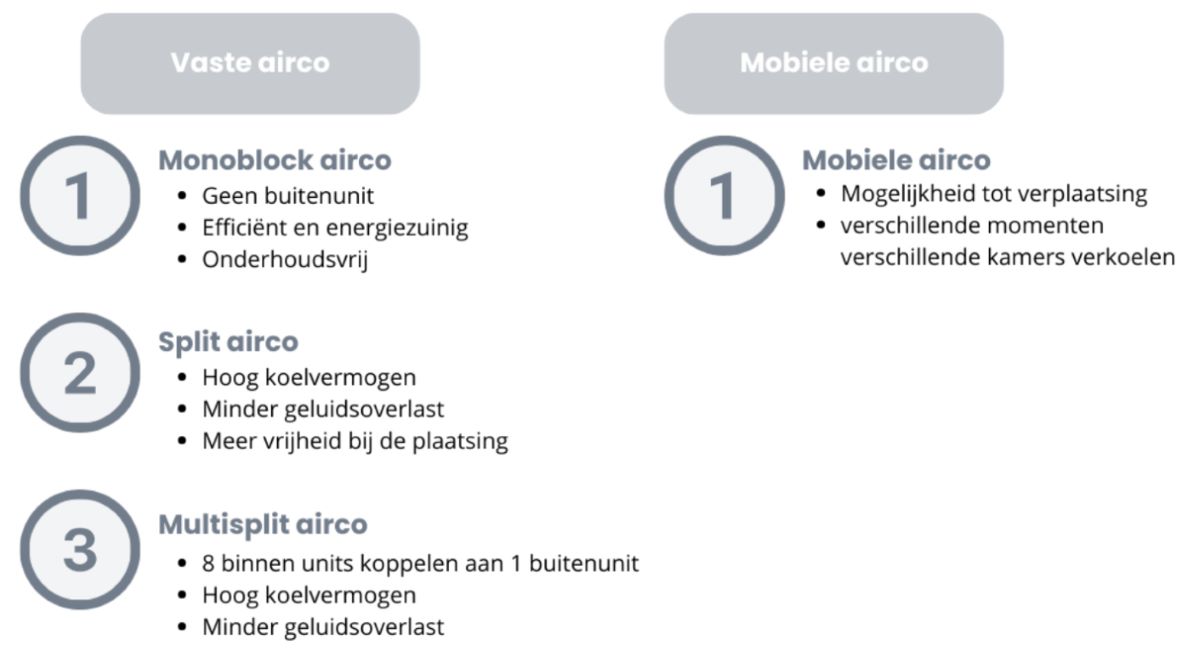
Fixed air conditioning
A fixed air conditioner, as the name implies, is a type of air conditioner that is not portable. This category of air conditioner includes three types of fixed air conditioners.
* The first type is the monoblock air conditioner. This air conditioner has a single unit, which is an indoor unit containing all the components. They are primarily designed for targeted cooling of individual rooms, especially in situations where there is no space for an outdoor unit.
* The second type is the split air conditioner. A split air conditioner, the most well-known and common air conditioning system, consists of both an indoor and an outdoor unit connected by refrigerant pipes. You have the option to mount the indoor unit of a split air conditioner on the ceiling, floor, or wall.
* The last type is the multi-split air conditioner. This type is similar to the split air conditioner, but it has multiple indoor units connected to a single outdoor unit. A multi-split air conditioner is ideal for efficiently cooling several small spaces.
Mobile air conditioner
Unlike a fixed air conditioner, a mobile air conditioner can be easily moved to different locations in the home. As a result, you don't have to think in advance about exactly where you want your air conditioner because the installation is not permanent. This flexibility in moving allows you to cool various rooms at different times.
For more information on the types of air conditioners and their specific advantages and disadvantages, be sure to check out our blog on specific types.
Step 3: define the required cooling capacity
It is extremely important that you choose an air conditioner with the right capacity. Only then will you guarantee that you get the best efficiency. For example, if the capacity is too low, the air conditioner will have to work harder to reach the desired temperature, leading to higher energy consumption and more wear and tear. On the other hand, if the capacity is too high, you will pay unnecessarily for the air conditioner purchase.
Het aantal benodigde kW, kan je eigenlijk gemakkelijk berekenen aan de hand van de volgende formule:
(Aantal m³ x isolatiegraad) /1000 = kW
De mate van isolatie verwijst naar de kwaliteit van de isolatie in de ruimte waar je van plan bent de airconditioner te installeren. Een verbeterde isolatie van de ruimte leidt tot een verminderde behoefte aan koelcapaciteit. Daarnaast hebben ook de hoeveelheid zonlicht dat de kamer binnenvalt en andere warmtebronnen ook een invloed op het benodigde vermogen.
Step 4: Consider how much energy your air conditioner may use
When choosing an air conditioner, it is also important to take a moment to consider how much it will consume. An air conditioner typically uses 1 kilowatt hour of electricity per hour. However, this is only an average, as there are a lot of factors that affect the air conditioner's consumption. For example, the amount of light in the room and the insulation value of your home play a big role. Also, your air conditioner will consume more or less depending on the type, cooling capacity and energy label of the air conditioner you choose.
Step 5: determine how quiet you want your air conditioner to be
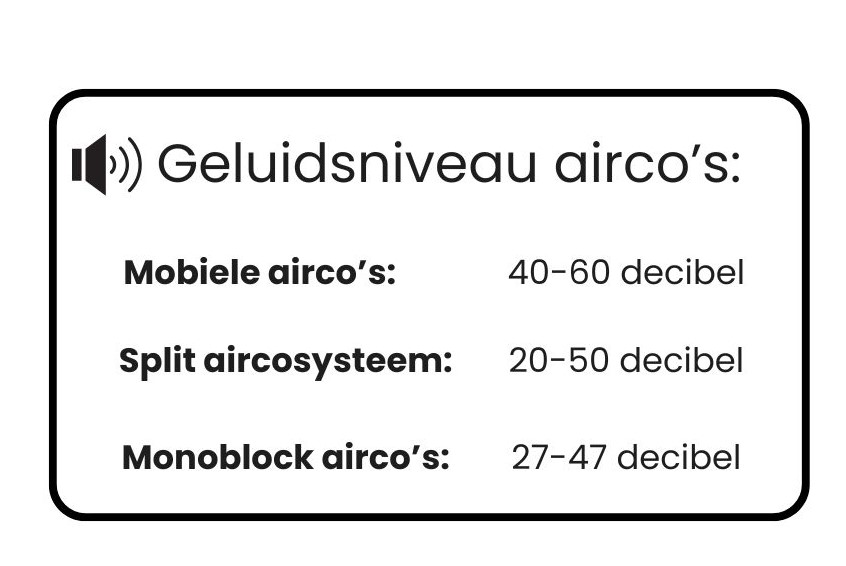
No air conditioner is completely silent. That's normal. In some situations, however, you want an air conditioner that is as quiet as possible. Consider your bedroom, for example: that's where you want to completely unwind and a noisy air conditioner is not really recommended.
*Portable air conditioners are generally the systems that produce the most noise, with noise levels ranging between 40 and 60 decibels at an average distance of about 1 meter.
* The traditional split air conditioning system, consisting of an outdoor unit and one or more indoor units, is known for producing the least noise indoors. However, the noise level of a split air conditioner can vary depending on the specific model and settings. Generally, the noise level of a split air conditioner ranges between 20 and 50 decibels (dB) at an average distance of about 1 meter.
* Monoblock air conditioners have a similar noise level to split air conditioners. Models like the Innova 2.0 12HP and AeroComfort, for example, produce noise levels between 27 and 47 decibels at an average distance of about 1 meter.
Step 6: Consider whether you want a multi-purpose air conditioner
Some air conditioners are equipped with a air-to-air heat pump. This term refers to the fact that the air conditioner can both cool and heat. An air conditioner with a heating system can be a useful addition. While an air conditioner can heat a space more efficiently, it can only heat specific zones because it is not integrated with the central heating system. To heat multiple rooms, a multi-split system is required.
In addition to heating, you can also equip your air conditioner with air purification options. For example, by adding ionization to your air conditioner, not only fresh air is blown into your home, but also clean and healthy air. Especially young children, the elderly, and people with hay fever or dust mite allergies will greatly appreciate this addition.
TIP: Ask for free advice from an air conditioning specialist.
To be absolutely sure you're choosing the most suitable air conditioner for your situation, it's a wise idea to consult with a few air conditioning specialists. In many cases, you can request free and non-binding advice. This way, you'll get a clear picture of the options, total costs, implementation times, and more, allowing you to make a well-informed decision.
Contact AeroConsult
Want to learn more about the benefits of air conditioners? Check out our latest blog posts now.


